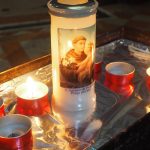I already looked into the reasons why Commissario Brunetti has become such a beloved fictional literary hero.
In this post of mine (click here to read the entire post) I mentioned
- Guido is an honest man, with a high sense of justice;
- He is smart, intelligent, respectful and delicate in his interviews; he considers his cases from all points of view, the philosophic side but also the human side is equally important;
- He is a gourmet, he loves good food and good wine.
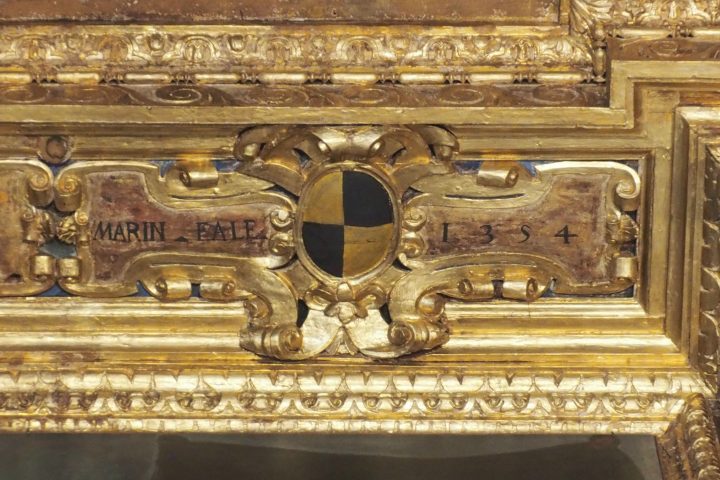
coat of arms Falier
COUNT ORAZIO FALIER
I would like to investigate in this post another reason why we cannot wait to read about a new investigation by Brunetti: his parents-in-law, Count Orazio Falier and Donatella.
Brunetti was born into a very poor family, but married Paola Falier, the heiress of an immense fortune. His in-laws bring us into ‘another’ Venetian world, rich, powerful, influential and yet possibly corrupt.
His relation with his father-in-law is not smooth; especially in the first novel emerges a certain tension, that decreases over the decades. What does not change is his feeling of the social gap between himself and them.
In Brunetti’s first novel DEATH AT LA FENICE there are several descriptions of Palazzo Falier
‘Despite the spectacular views… Brunetti avoids unrequired visits to the Falier family home for a variety of reasons, his democratic soul finds ludicrous the aristocracy’s laments that they are all in ‘fallen times’ because there are no more private gondoliers’.
He wonders how to address his father-in-law ‘and after nearly 20 years, relations with his in-laws remain ambiguous; he is still undecided how to address Paola’s father – Count is too formal; Orazio impossible; Papà unthinkable’.
In ABOUT FACE (18th) Brunetti is still uncertain how his father-in-law considers him, ‘as a jumped-up peasant who had stolen in and made off with the affections of the Conte’s only child or a person of worth and ability’.
In one of the last novels (28th) UNTO US A SON IS GIVEN Count Falier even asks Brunetti a favour, to talk to an old friend of his, the childless Gonzalo, over 80 years old who is planning to adopt a son, a younger man who will inherit his fortune. Brunetti reflects how to interpret the Conte’s statements, ‘Was that a question, Brunetti asked himself, or a statement of the Conte’s opinion? Did it refer to the difference in rank between him, the son of a man from lower classes whose life had been a series of defeats, and his wife, … heiress to one of the largest fortunes in the city? Or perhaps between the professional responsability and the demands that friendship and love might make upon him? Or was it his situation as a commissario of police married into a family of the man before him, whose business dealings might not bear close examination?’.
Yes, Count Orazio is often mixed up with strange connections, being however at the same time an important source of resources!
During a dinner party in Palazzo Falier Brunetti (ABOUT FACE) meets Franca Marinello, the wife of a very rich Venetian, who loves Virgil and Cicero, exactly as Brunetti, in what the Classics say about politics. Only later he discovers her husband is involved in a matter of toxic waste.
When reaching the Palazzo standing in front of the portone Brunetti thinks ironically ‘no livery’ … no periwigs? My God, where is the world going to? Next thing the servants will be eating at the high table and then the silver will start to disappear’.
THE FAMILY FALIER AND VENICE
‘Count Falier, who numbered 2 Doges on his mothers’ side, could, and did trace his family back to the tenth century’ DEATH AT LA FENICE
One of the 120 Doges, Marin Falier, was sentenced to death, executed according to a wrong tradition by the 2 columns in San Marco. 1355 he was discovered plotting against the state and was beheaded. His portrait in the long frieze of Maggior Consiglio in the Doge’s palace was removed and replaced by a black cloth.
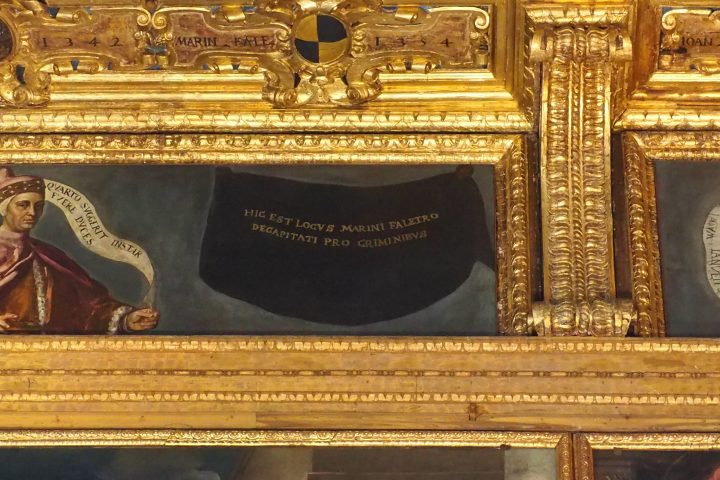
the missing portrait of the Doge Marin Falier
Lord Byron loved this story and wrote while spending nearly 4 years in Venice a letter (‘this was the thing that most struck my imagination in Venice’) and a piece called Marino Falier.
So the name Falier was an excellent choice for this ‘controversial’ father-in-law.
PALAZZO FALIER
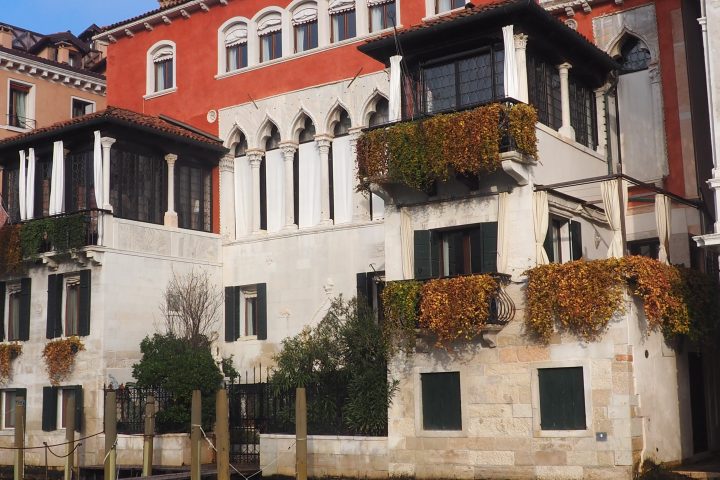
Palazzo Falier by San Vidal
The American writer and novelist William Dean Howells spent nearly 4 years in this palazzo.
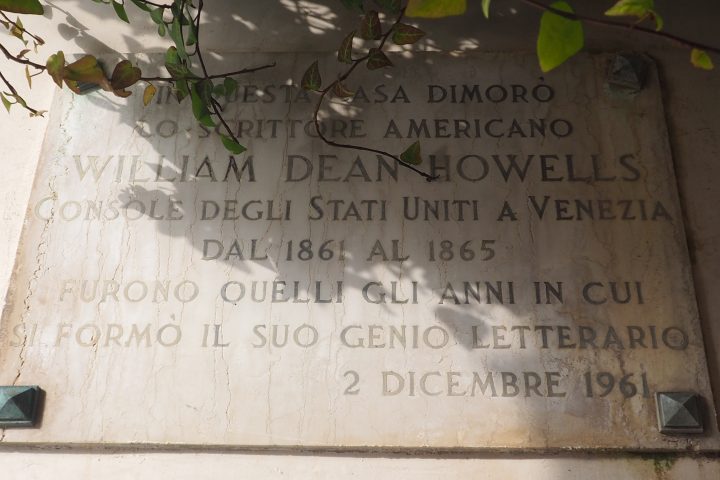
slab commemorating Howells’ stay in Palazzo Falier
Where is Palazzo Falier?
In an interview Donna Leon confessed she invented Palazzo Falier. The fictional palace is located on the Grand Canal by the Accademia bridge, surrounded on 3 sides by water, that has belonged to the Family for at least 3 centuries. Difficult to heat and in need of constant repairs.
The first novel DEATH AT LA FENICE describes how Brunetti never counted the rooms with Murano glass chandeliers. ‘It would be an exaggeration to say that Brunetti disliked Paola’s parents, the Count and the Countess Falier, but it would be an equal exaggeration to say that he liked them… They belonged to a rare and elegant species, and Brunetti, after knowing them for almost 2 decades, had to admit that he had mixed feelings about the inevitability of their extinction’.
There are 2 Palazzi Faliers in Venice on the Grand Canal, one by the Accademia Bridge in the district of Dorsoduro (see photo above) and one along a side canal in Cannaregio.
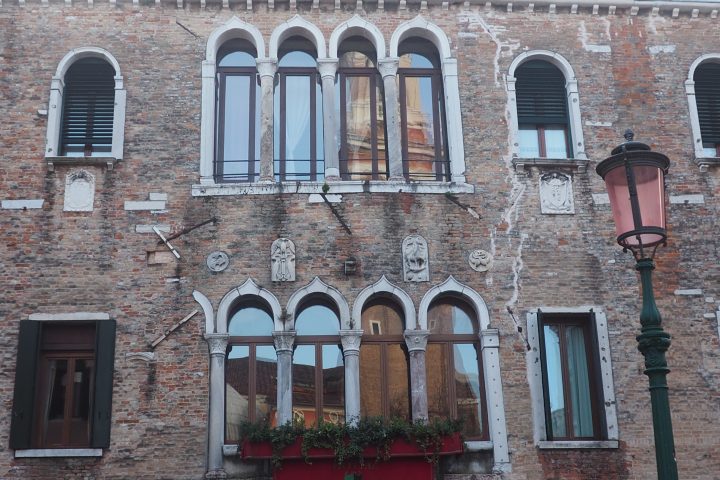
Palazzo Falier by Ss. Apostoli
DONATELLA FALIER
Donatella is equally powerful, in her way, as her husband; by birth, Donatella’s mother, so Paola’s grandmother, was born in Florence and claimed descent from the Medici. She attends the opening nights of the 4 most important opera houses in Italy, organizes concerts for the Red Cross, gives a masked ball for Carnival for hundreds of guests every year.
In GIVE UNTO OTHERS Donatella introduces Brunetti to a countess. She receives him in Palazzo Falier in the Sala dei Giochi, used by her husband for gambling. They joke together, he asks her if she had read the letters of Rosa Luxemburg again, she replies, she is too old to read things like that and she added too rich.
Guido must acknowledge, ‘it’s because you are surrounded by love, Guido. You swim in it. You have Paola, and Chiara, and Raffi, you even have Orazio and Donatella, who love you too’.
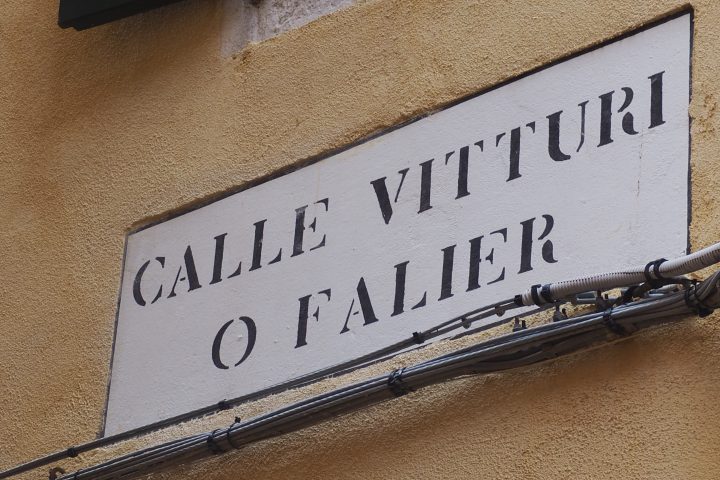
Calle Falier just behind Palazzo Falier
Fiona Giusto



